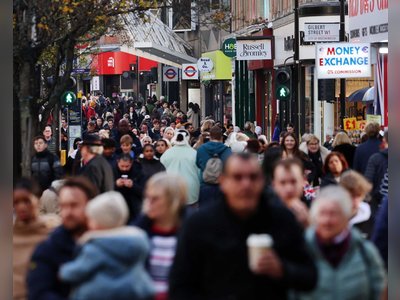
Like ‘Italy’s Robinson Crusoe’, many of us crave the idea of aloneness – even after lockdown
Mauro Morandi had to leave his solitary island life. Having been cooped up with others for months, it could be appealing
It was poignant to read of 81-year-old Mauro Morandi’s decision to leave Budelli, the island off Sardinia that had been his home for more than 30 years, following threats of eviction. He had been nicknamed “Italy’s Robinson Crusoe”, having ended up there simply by chance, after his catamaran broke down while attempting to sail to the South Pacific. The island’s caretaker happened to be retiring, and Morandi loved the place so much that he decided to stay and assume the role; until now.
There’s something so sad about hearing of a person torn from their idyll, when they have sought out and built for themselves a life of solitude. Though we may not all be natural hermits, I think many of us understand that, for some people, constant social interaction can be draining and even painful, a source of anxiety rather than pleasure. Books such as Quiet: The Power of Introverts in a World That Can’t Stop Talking, and a better understanding of neurodiversity, have led to a greater empathy over the past decade with those who need more of their own company, and feel stressed by constant socialising or overstimulating environments such as open-plan offices.
Some people simply respond differently to social situations, and that doesn’t mean that introverts are rejecting all forms of dialogue with others. Engaging with art while alone, for example, is still a form of communication. As Susan Cain, the author of Quiet, writes: “Private occasions … make me feel connected to the joys and sorrows of the world, often in the form of communication with writers and musicians I’ll never meet in person.”
It does feel that it has become more acceptable to be something of a loner, that the natural hermits among us face fewer unkind stereotypes than they once did. Lockdown may have aided this, or it may not. I have heard many people say that they identified as introverts, until they were forced to stay at home alone for weeks and months on end during the pandemic. It made them realise how much they relied on social connection for their wellbeing. Perhaps there will be a backlash against solitude.
Solitude and loneliness are, of course, different things. Throughout human history there have been those who craved solitude and its spiritual and psychological benefits. Some speak of it in miraculous terms. Christopher Knight, the man who walked away from society when he was 20, living in the forests and valleys of Maine for 27 years, said that “solitude increased my perception. But here’s the tricky thing: when I applied my increased perception to myself, I lost my identity. There was no audience, no one to perform for. There was no need to define myself. I became irrelevant.” This obliteration of identity wasn’t, he said, a bad thing. “My desires dropped away. I didn’t long for anything. I didn’t even have a name. To put it romantically, I was completely free.”
Though nowhere near as extreme, the lockdowns of the past year have given lots of us time to reflect on how much social interaction we want in our lives once things open up again. Some have flourished in the solitude and some have been unbearably lonely, spending months without human touch. Others who before relied on periods of solitude have found themselves in constant company. This was the situation I found myself in; I had been used to having the place to myself for hours on end, to write and to think, I had come to believe I needed it in order to function. Had you told me a year ago that I would be able to work and exist perfectly well with another person in the house constantly – and a needy cat to boot – I would not have believed you. We have all of us had to adjust. It has taught me about the sort of balance I would like in future.
Saying that, I still crave aloneness. Pre-Covid, my periods of solitude were always punctuated by bouts of “extreme socialising” in the evenings; now I feel exhausted at the thought. Really what I need is a week on my own, to read, to write, to listen to records and sit in the garden. Even better, a forest. I need Waldeinsamkeit, a German word meaning “the feeling of being alone in the woods”. Or take me to Budelli where I can swim from a pink beach! It sounds like heaven.
Basically, I need the solitude that my mother and grandmother and millions of other people have had forced on them for months. I realise that others will be categorically not where I am, psychologically: they’ll be gearing up for one hell of a party. I won’t be surprised if this year didn’t see another summer of love. I’m looking forward to it; I might even have a birthday party, but only after a short stint with as much solitude as I can find first, an anticipatory recharging.
I do wonder how many social misunderstandings are going to come about as a result of the different levels of aloneness we crave. Some will be hurt to have their invitations rebuffed – it seems counterintuitive that, after a period of enforced isolation, some might not be up for a jam-packed calendar. It’s generally the louder and the more sociable who tend to win out, but empathy needs to flow in both directions. I’m seeing the summer as an experiment, from which we’ll hopefully emerge hungover, but with a better idea of the sort of social lives we want.
As for Morandi, he’s moving to a larger, more populated island, where he will live on the outskirts of the main town. “I will just go there for shopping and the rest of the time keep myself to myself,” he said. “My life won’t change too much, I’ll still see the sea.”
There’s something so sad about hearing of a person torn from their idyll, when they have sought out and built for themselves a life of solitude. Though we may not all be natural hermits, I think many of us understand that, for some people, constant social interaction can be draining and even painful, a source of anxiety rather than pleasure. Books such as Quiet: The Power of Introverts in a World That Can’t Stop Talking, and a better understanding of neurodiversity, have led to a greater empathy over the past decade with those who need more of their own company, and feel stressed by constant socialising or overstimulating environments such as open-plan offices.
Some people simply respond differently to social situations, and that doesn’t mean that introverts are rejecting all forms of dialogue with others. Engaging with art while alone, for example, is still a form of communication. As Susan Cain, the author of Quiet, writes: “Private occasions … make me feel connected to the joys and sorrows of the world, often in the form of communication with writers and musicians I’ll never meet in person.”
It does feel that it has become more acceptable to be something of a loner, that the natural hermits among us face fewer unkind stereotypes than they once did. Lockdown may have aided this, or it may not. I have heard many people say that they identified as introverts, until they were forced to stay at home alone for weeks and months on end during the pandemic. It made them realise how much they relied on social connection for their wellbeing. Perhaps there will be a backlash against solitude.
Solitude and loneliness are, of course, different things. Throughout human history there have been those who craved solitude and its spiritual and psychological benefits. Some speak of it in miraculous terms. Christopher Knight, the man who walked away from society when he was 20, living in the forests and valleys of Maine for 27 years, said that “solitude increased my perception. But here’s the tricky thing: when I applied my increased perception to myself, I lost my identity. There was no audience, no one to perform for. There was no need to define myself. I became irrelevant.” This obliteration of identity wasn’t, he said, a bad thing. “My desires dropped away. I didn’t long for anything. I didn’t even have a name. To put it romantically, I was completely free.”
Though nowhere near as extreme, the lockdowns of the past year have given lots of us time to reflect on how much social interaction we want in our lives once things open up again. Some have flourished in the solitude and some have been unbearably lonely, spending months without human touch. Others who before relied on periods of solitude have found themselves in constant company. This was the situation I found myself in; I had been used to having the place to myself for hours on end, to write and to think, I had come to believe I needed it in order to function. Had you told me a year ago that I would be able to work and exist perfectly well with another person in the house constantly – and a needy cat to boot – I would not have believed you. We have all of us had to adjust. It has taught me about the sort of balance I would like in future.
Saying that, I still crave aloneness. Pre-Covid, my periods of solitude were always punctuated by bouts of “extreme socialising” in the evenings; now I feel exhausted at the thought. Really what I need is a week on my own, to read, to write, to listen to records and sit in the garden. Even better, a forest. I need Waldeinsamkeit, a German word meaning “the feeling of being alone in the woods”. Or take me to Budelli where I can swim from a pink beach! It sounds like heaven.
Basically, I need the solitude that my mother and grandmother and millions of other people have had forced on them for months. I realise that others will be categorically not where I am, psychologically: they’ll be gearing up for one hell of a party. I won’t be surprised if this year didn’t see another summer of love. I’m looking forward to it; I might even have a birthday party, but only after a short stint with as much solitude as I can find first, an anticipatory recharging.
I do wonder how many social misunderstandings are going to come about as a result of the different levels of aloneness we crave. Some will be hurt to have their invitations rebuffed – it seems counterintuitive that, after a period of enforced isolation, some might not be up for a jam-packed calendar. It’s generally the louder and the more sociable who tend to win out, but empathy needs to flow in both directions. I’m seeing the summer as an experiment, from which we’ll hopefully emerge hungover, but with a better idea of the sort of social lives we want.
As for Morandi, he’s moving to a larger, more populated island, where he will live on the outskirts of the main town. “I will just go there for shopping and the rest of the time keep myself to myself,” he said. “My life won’t change too much, I’ll still see the sea.”










